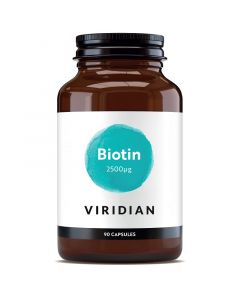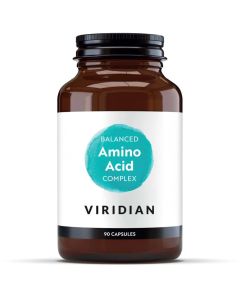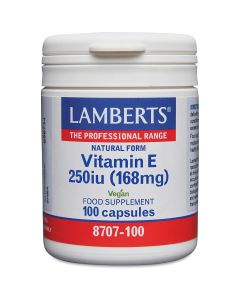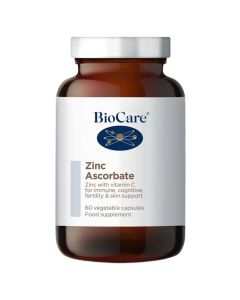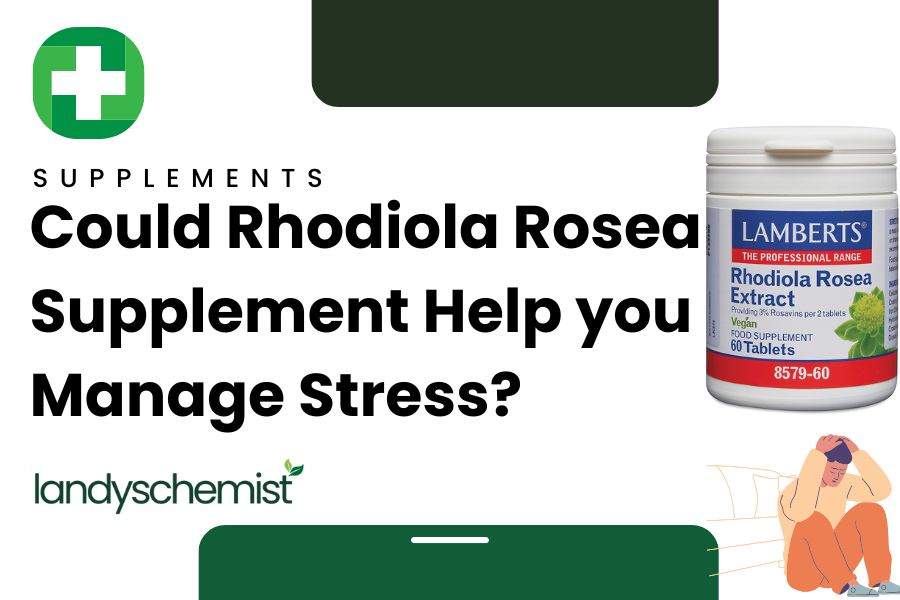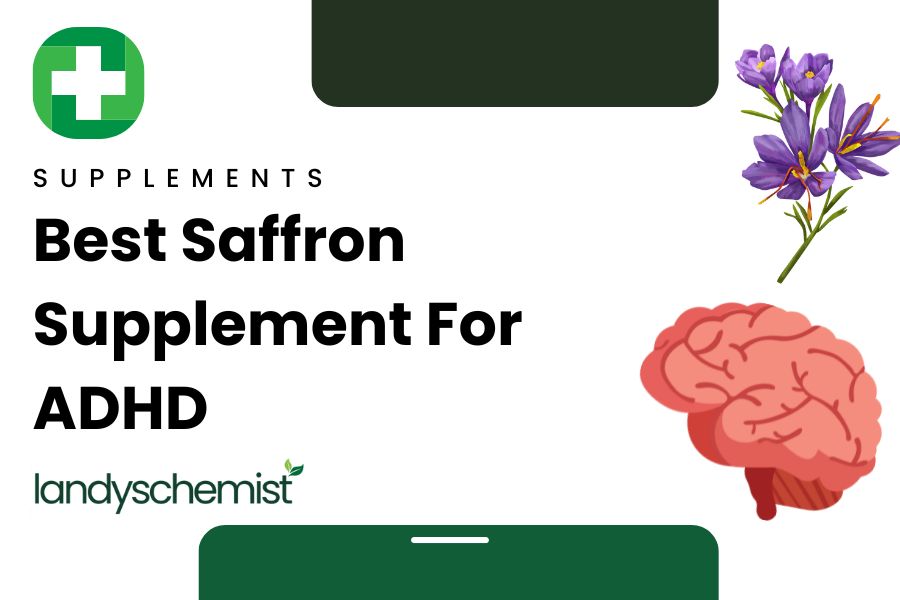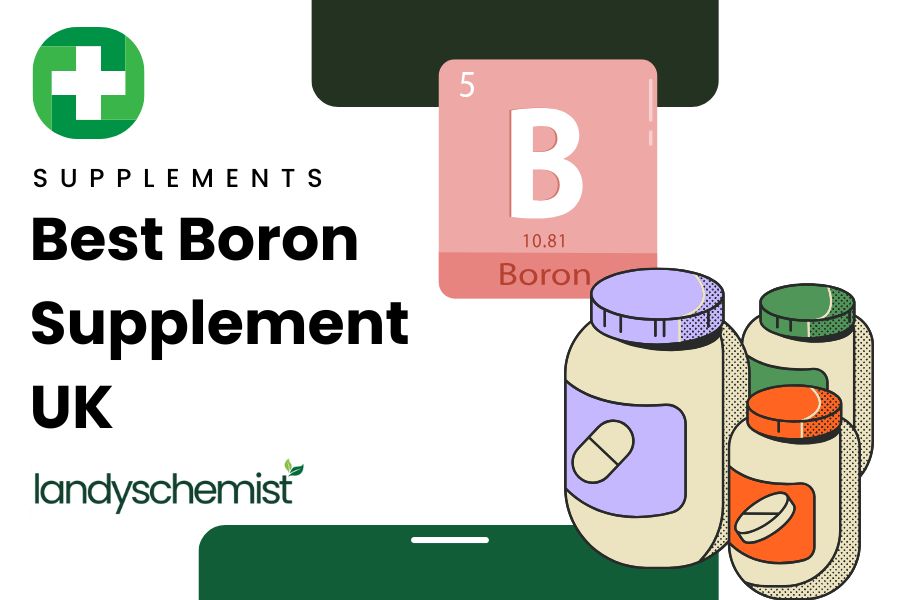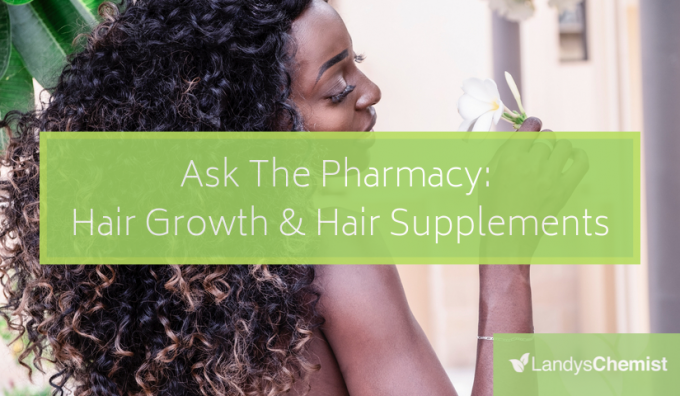
Ask The Pharmacy: Hair Growth (Part 2 Of Hair Care & Hair Supplements Series)
How to promote hair growth is one of the most popular topics within hair care. Lots of people are curious about how to encourage their hair, whether they are growing out a short style or looking to add more length to their locks. We’re here to help.
In this video, we Ask The Pharmacy about what hair needs to grow, which vitamins and minerals can help and where to get those nutrients. We’ve included a transcript below with recommended hair growth supplements in italics within the transcript. .
~ Start Of Transcript ~
Introduction
A common theme running through our pharmacy is people’s concerns to do with their hair, and that comes in a variety of forms. People are worried about hair loss, scalp issues, weaker hair, thicker hair, just healthier looking hair in general. And it all comes down to the same thing really, which is, when you hair looks great, you feel great and you’re more confident and happier.
So, just like our skin, there are a number of markers where we can look at that indicate how healthy we’re living and also whether our diet is contributing to good hair health. The most important thing to remember when it comes to hair health is actually your body is always assigning priority. So when your giving it, you know, good things like vitamin B and iron, your body is allocating that based on priority, and, as far as your body is concerned, your hair is always the bottom of the priority list. So if your diet is not really good quality, then your hair is really likely to suffer.
And that’s why so many people do decide to take supplements. In this video series, we’re going to talk about four common issues: preventing hair loss, promoting hair growth, because the two are obviously quite different, boosts for dry, weak or brittle hair and also solutions for dry and flaky scalps.
What Vitamin Supplements Help Boost Hair Growth? – 01:32
For the second video in our series, we’re going to be talking about how to boost hair growth.
B Vitamins / Biotin – 01:36
Landys Recommends:
So, if we’re looking at boosting hair growth, there’s a few things that come up again and again. B vitamins, but in particular Biotin, are very very popular. There’s an extraordinary amount of press out there about Biotin. And Biotin is great actually, it really does have a great impact. Essentially, all the B vitamins are doing a variety of things, but when it comes to hair, they’re helping to carry oxygen and nutrients to your scalp, all of that aids hair growth.
You can get B vitamins through things like whole grain cereals, fruits, eggs, even meat. When it comes to Biotin, it really does work, in terms of helping your hair to grow, however, one warning that we always give to people is that: long term intake of high doses of Biotin can, essentially, make your body very lazy. What happens is your body takes the supplement of Biotin and the actually produces less and less of it for itself. So, what we always advise is by all have a little bit of Biotin if you want to kick start your hair growth, but then look to move to something like a protein based supplement or an amino acid based supplement in the long term because you don’t want your body to get lazy. You don’t want to become dependant on Biotin to keep your hair growing at all.
Vitamin E – 03:14
Another supplement that is very popular is vitamin E. Vitamin E, a little bit like vitamin C, essentially is an anti oxidiser. It prevents free radicals causing damage. Vitamin E can be, or you can get vitamin E from your diet, you can get it naturally though things like nuts and seeds, but also vegetables oils.
The one thing I will say about vitamin E is that it is extremely rare for anyone to be deficient in vitamin E. It’s something that you would generally discover through a blood test, but like I said, it’s incredibly unlikely. So, typically, although there are very very good sources of vitamin E out there, both naturally and via a supplement, like Lamberts Vitamin E, I generally wouldn’t think that it was very likely that a lack of vitamin E was causing your hair not grow. That said, the only exception to that rule could, again, be breastfeeding mothers. But because obviously you are not only looking after yourself there you also need to be thinking about your baby, I will always say that before you decide to supplement with vitamin E, you should always get a blood test and speak to your Doctor about it.
Zinc – 04:38
Landys Recommends
So, we’ll move and talk a little bit about zinc now. Zinc plays a very important role in your body’s immune system. That’s why so often you’ll see vitamin c supplements that combine vitamin C with zinc. And again, it’s about keeping your body really healthy, so that your hair can not just grow but repair itself and be as strong as possible.
You can access zinc naturally through your diet, it comes from very similar places to vitamin B actually. So, you’ll find that if you want to increase your, the presence of these minerals naturally, you’ll be doing that, you know, the same way. So things like, again, whole grain cereals, eggs, nuts, are all good sources of both vitamin B and zinc.
Protein – 05:29
And lastly, and we’ve already mentioned it but we’ll mention it again, is protein. Again, because your body is made of it, the more protein your have in the body, the more your body can put towards things like growth. Not just, obviously, of muscles, which is what people traditionally think of when they think of proteins, but also, obviously, of hair as well. Because for your body to grow hair, that’s an energy process.
Next Time On… Ask The Pharmacy – 05:51
That was part one of our series on hair care and hair supplements. Coming up next, we’ll be discussing boosting hair growth. Check out our website or subscribe to our YouTube channel for more videos soon.
~ End Of Transcript ~
About Mitesh
Mitesh works at Landys Chemist as a nutritionist. His focus is on ensuring people’s wellbeing and to offer solutions where people are finding an imbalance in their life.
Disclaimer
The products offered are not intended to diagnose, treat, cure, or prevent any illness or disease, or to replace the advice of a medical professional. Results are not guaranteed and may vary from individual to individual.

